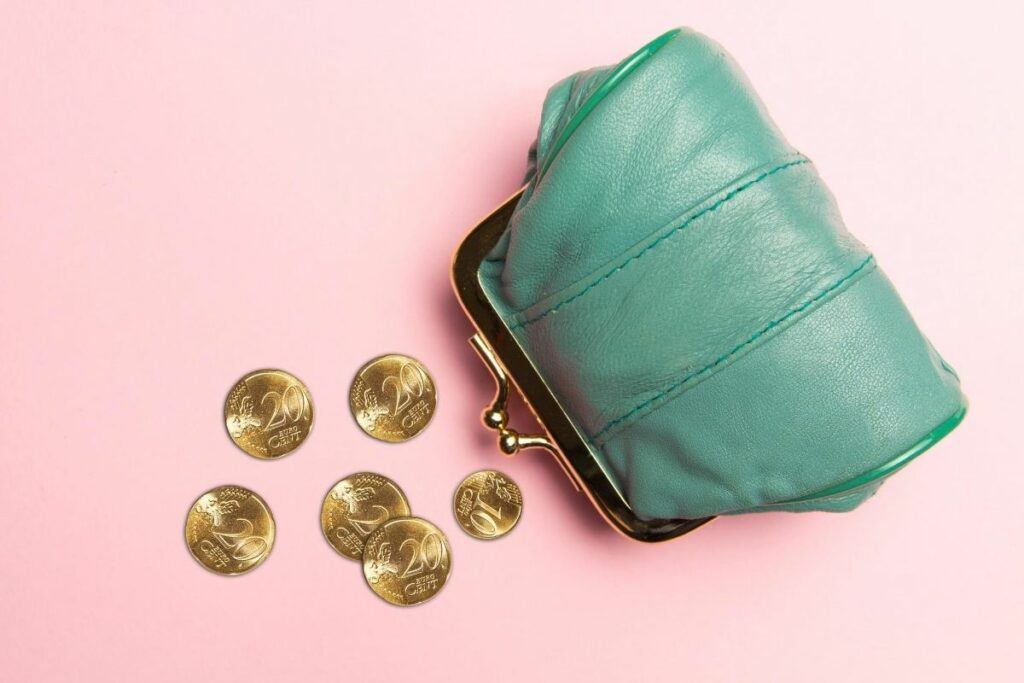This post may contain affiliate links. Please read my disclosure policy for more info
In life, there are certain things that need to be done early. This includes developing good money habits as early as possible.
Your early 20s (or even before) are actually a good time to start developing healthy money habits. At just about that age, most people, due to one reason or another, face some form of financial pressure. This is also the time most people will probably start earning professionally, so it becomes necessary to adopt the tradition of managing your finances effectively in order to live a meaningful life.
However, no matter what age you’re at, money management is an important skill that everyone should get good at.
Rest assured, in this article, we’ll be looking at the top ten good money habits to adopt as early as possible if you want to live a financially stable life. Let’s dive right in!

1. Establish A Budget
As a kid, you probably cared less about budgeting (okay, a lot less). You probably spent any little money that you got your hands on. Don’t worry, I’m not judging you, it’s quite understandable because you had little or nothing to worry about.
So, why should you care to plan your spending? All that financial carelessness can be tolerated when you are a kid. But not in your teenage years or early adulthood.
Budgeting is a good money habit one should adopt as early as you start handling money! And of course, it is the first financial management step to take.
Budgeting helps you to plan your spending and assign different tasks to your money in the right proportion. This way, you know the amount to spend and the amount to save.
Hence, you will create a spending limit that will give you the right financial direction. In a nutshell, by budgeting, you become more financially responsible. If you’ve never had a budget in your life, you might feel weird in your first attempt to initiate the habit. But don’t panic.
There are several books, or even apps that can help you in that regard.
2. Start Saving
Of course, you have to save! You already know this, right? I mean if you don’t then we really need to talk.
Saving for the future should be one of your top priorities. And you should embrace that habit as early as possible. After you’ve planned your spending (budgeting), there is a certain amount that must go into the savings box.
Actually, to save money is easier said than done, especially when you’re not earning enough or when you are drowning in the ocean of debts. It’s like passing through the eye of a needle.
However, it’s still essential to save! Fortunately, you don’t have to start big. You can save just as little as 10% of your daily/weekly or monthly earnings.
If you start saving little, by the time you start earning big, it becomes easier to adjust.
In a situation where you are overwhelmed by certain challenges that make it virtually impossible to save, you can create another stream of income. It will help you to start putting something into your savings box.

3. Set Defined Monetary Goals
Another good money habit you must strive to adopt early in life is to establish financial goals that are really well defined. Having a goal(s) is actually cool because it motivates you to keep working towards that meaningful life you aspire to live.
One good thing about financial goals is that they’re subjective to each individual. Your goal is dependent on your financial strength. Hence, it’s easier to set.
For instance, your financial goal might be to become a multi-millionaire by the age of 30, while to another person it’s to earn his first 100k by the same age. It typically depends on the circumstances.
However, the most important thing is just to set that goal. It’s only when you set a goal that you can start coming up with certain plans on how to achieve it.
Now, you have to be realistic and definite with any goal you set.
In the case where you intend to earn your first 100k by 30, you have to know how much you earn daily, then point out how much you MUST save per month in order to achieve that goal at the stated time.
Related: Simple Goal Setting Steps For Beginners
4. Clear Your Debts
If you really want to stabilize your life financially or otherwise, you must do all you can to stay out of debt. If you are in deficit, maybe due to a loan or credit card debt, then clearing it is the first goal you should strive to achieve.
There is no way you can possibly make headway if you are in debt! Paying off your debts would make your life a lot easier.
How to go about it?
First, don’t pay off your debt one-time. Splitting the payment in chunks will make it simple and feasible.
Let’s say you are in debt of $3000; splitting the payment into $500 per month will be a lot easier, especially if you don’t earn much more than $1,000 per month. In just six months, you would have cleared the debt.
5. Don’t Purchase Unnecessarily
Buying lavishly is not what you want to do if your aim is to adopt good money habits. In other words, it’s not ideal to buy on impulse.
It doesn’t just result in money wastage, but also makes you buy things you really don’t need!
Well, going shopping once in a while is great (we all love shopping, even eye-shopping is fun). But it is definitely better if you plan your shopping to ensure that whatever you purchase is worthwhile.
The best way to bring this to effect is by creating a shopping goal. Before stepping out, write down the things you need to purchase and adhere to the list.
If there is an item you feel you need that is not on the list, then wait till next time. There is a high tendency that you wouldn’t feel like coming back for it. After all, you never really wanted that item; you only had the impulse to buy it. Also, never go shopping hungry!
6. Plan Your Retirement
One mistake many youths make is feeling they are too young to plan for retirement. An individual who has foresight should acknowledge the fact that one only survives old age through his achievements during his youthful years.
You never know what may happen to your finances in the future. For that reason, you have to start investing in your later years now.
That’s the only way you can secure your future, and so, old age will be fun (yep, I’m serious).
7. Pay Your Bills On Time
Paying your bills on time is one good money habit you need to adopt. Don’t just allow those bills to pile up!
I’m sure you can relate to how it feels when you remember you have an overdue bill to pay. The pressure that comes with unpaid bills is something you don’t want to experience. It even worsens when you have little money at your disposal.
Creating that habit of paying for things as soon as possible will save you from lots of distress in the long run. Believe me.
There are people who prefer to pay their bills even if it takes their last penny to clear things up. Such resoluteness is a habit anybody should emulate.
To achieve this, you have to give yourself a payday rule. This rule is nothing more than to pay up your bills once you get paid.
To make it simple, create a list of all your bills for the week or month. Then pay up immediately you receive your wage or salary. You will feel so free and relaxed afterwards.
8. Educate Yourself Financially
It’s actually very important for parents to start tutoring their kids early on how to handle money.
Unfortunately, not everyone got that basic financial education from their parents. And this might result in financial mismanagement during early adulthood.
However, the good news is that presently, there are various means to educate yourself monetarily.
You can read books, visit financial blogs, listen to podcasts, or even watch certain YouTube videos that elucidate on good money habits. You’re on the right track by reading this!
9. Understand Your Financial Capacity
It’s not just about spending on what you need; a good money habit has more to do with knowing your financial strength. It’s simple; don’t spend more than you earn. Also, don’t spend more than you have at hand.
Spending more than you earn is just like spending the money you don’t have. And as a matter of fact, such rash spending could land you in severe financial trouble!
Do you want to handle this effectively? Start by managing your credit cards well. Sure, I will agree with you that credit cards are important. However, you must use them with caution.
When you manage your credit card spending poorly, you might end up paying extra for things that should have cost you less. The extra fee apparently is for paying late. Issues like this only come up when you spend much more than you have via your credit card. And it’s a horrible financial habit to have.
Some tips that will help you decide wisely on the use of credit cards are;
- Always pay on time. Failing to do this will seriously affect your credit score.
- Don’t ever surpass your credit card limit, no matter what. Yes, you won’t die if you don’t buy that bag.
- If you can, then save up at times and pay in cash.
- Avoid buying on impulse. Avoid needless purchases. Always stick to your list.
10. Build A Positive Money Mindset
This might be coming last on this list but it’s probably the most important item to consider.
A positive money mindset will definitely bring about good money habits, fast. This is because all habits start from the mind.
Most successful people didn’t just meet success. It all started at an early age. They adopted a positive mindset when it comes to money. And hence, they made good financial decisions that propelled them to greater levels.
Again, it all starts from the mind!
All your life, you might have heard stories of how rich people are greedy. You might have also heard how insignificant money is or how we shouldn’t be obsessed with money…
Today, you have to unlearn those theories! Those are limiting beliefs that are basically meant to destroy your money mindset. It might get to the level where you wouldn’t even bother about making any money or creating savings.
This is quite a toxic mindset to have because those negative thoughts will definitely culminate into negative actions.
You shouldn’t be ashamed of being financially thoughtful. As a matter of fact, it’s admirable! So, always stay positive and shun any negativity as regards to money.
Related: 9 Ways To Transform Your Money Mindset
Final thoughts
Finally, I won’t fail to add that the best money habit you should ever think of adopting is to get intentional with your financial decisions and indecisions, actions, and inactions.
Being financially stable might not be all that easy, but it’s not rocket science either. It all boils down to INTENTION.
Pin these good money habits and tips for later!
Hey friend, if you found these tips on good money habits to develop useful, please take a moment to share it. Thank you!


